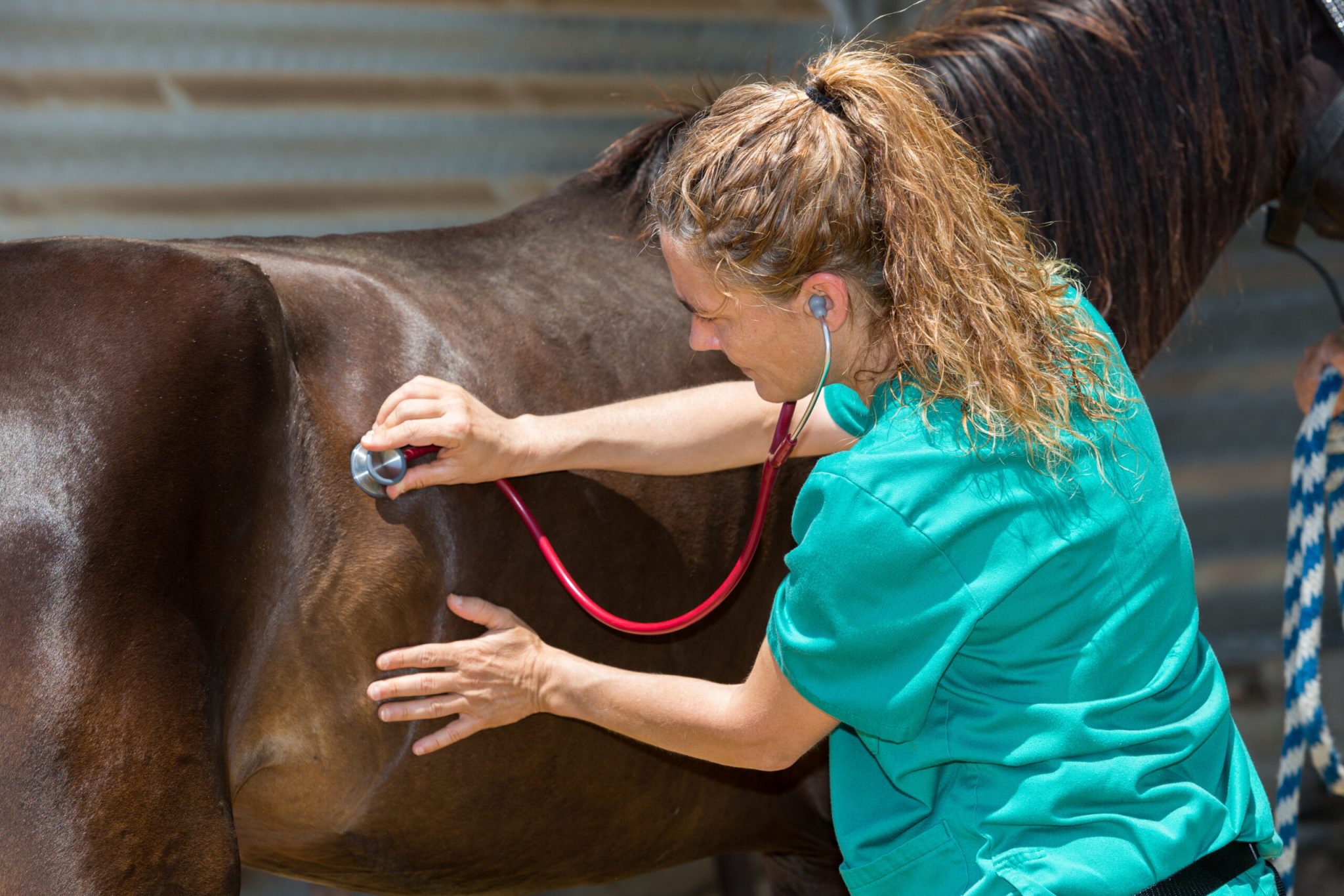These tips are especially relevant to new horse owners but serve as a good reminder for those of us who have been in the horse industry for a while.

Find One You Trust
Establish care with a vet that you can trust right away. If an emergency arises, your horse can receive adequate care.
Why it’s important: Finding a vet that you trust is as important as finding a doctor for yourself that you trust. Should something happen to your horse that requires immediate care, you won’t want to be scrambling to find someone to help. Establish a relationship with a vet that you can effectively communicate with and rely on in emergencies.
Have a Plan
Ambulatory vets are becoming few and far between, and more clinics are adapting to haul-in services. Have a hauling emergency backup plan if your vet can’t make it or is busy with other calls.
Why it’s important: If you don’t have your own trailer or way of hauling your horse, have a plan in place for emergencies. This might be a friend willing to let you borrow a trailer, or a friendly neighbor that would jump in. Whatever it looks like, having a hauling plan in place is extremely important for emergencies of all kinds.
Know Your Horse
Build a relationship with your horse so that you know their behaviors and possible quirks. This is beneficial to all people who are assisting in the horse’s care—whether they be farriers, veterinarians, massage therapists, saddle fitters, you name it.
Why it’s important: Not only is it important to know your horse so that you can be attuned to their needs, but also so you can recognize changes in behavior. If your horse is suddenly acting different or exhibiting strange behaviors, there could be something wrong. Knowing what your horse is like at their baseline, allows you to observe their behavior and notice changes when they happen. Your horse might have quirks that his team should be aware of during treatment, however, do your best to train them to stand for the farrier and have manners for those assisting in his care.
Notice New Behavior
If your horse is experiencing behavioral issues, seek out a veterinarian perspective to ensure that behavior is not pain related. Horses express themselves through behavior, not through words.
Why it’s important: Oftentimes bad behavior in horses is passed off as simply a bad attitude. There are certainly times when horses test their rider and could be lacking in basic foundational skills. But pain can definitely be a reason for poor behavior. If new behavior seems to arise suddenly, or your horse has behavioral quirks that don’t get better, rule out pain as the cause.
Be a Good Client
Finding an equine vet that you trust is a priceless thing. So, please pay promptly, respect boundaries by communicating during work hours, and have your horse caught and ready for its appointment at the time of service. Small things go a long way.
Why it’s important: Vets and farriers are integral parts of your horse owning journey. When you find an equine vet that you trust and rely on, treat them like the professional they are. Respect from all sides is an important part of building a team to provide your horse the best care possible.
Bonus tip… don’t believe in everything Dr. Google tells you.






